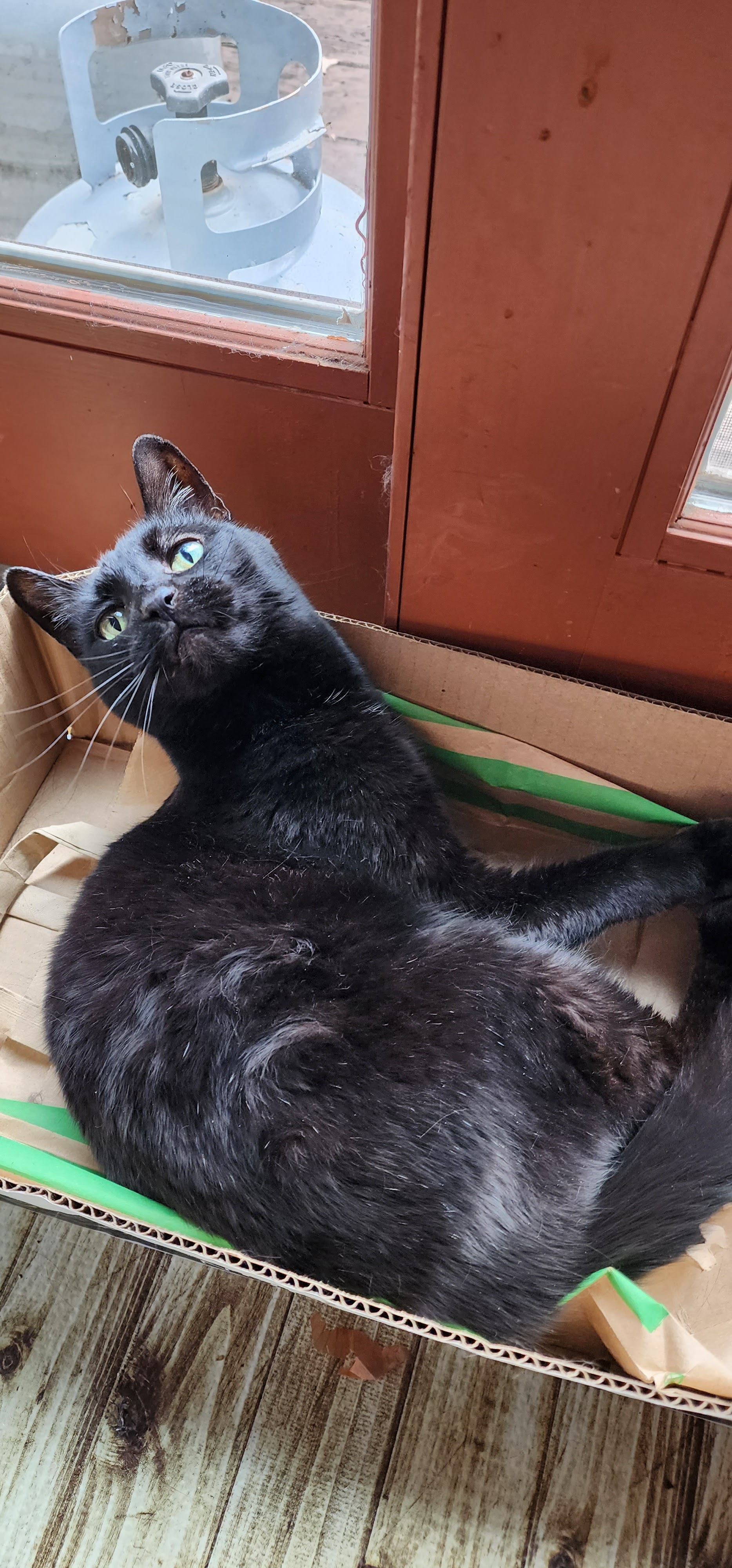They’re definitely gonna go after the wayback machine next, because what use is there in controlling social media and deleting what bothers them, if there’s freely accessible records of it somewhere else?
The archive needs to be protected at all costs.
AGreed
The archive needs to be decentralized. It must become immortal by ascending into the network itself.
I wonder if and how wanting to protect the Wayback machine is compatible with the overall sentiment (on Lemmy) that people need all necessary means to protect their privacy. Wouldn’t people who want that users can protect their privacy also be against the Wayback machine?
You can already ask the Internet Archive to take down a content if you can proof the content is yours (e.g. can’t just buy an old domain and demand the internet archive to delete the archived contents put up by the past owners). People also regularly ask them to take down harmful contents as well.
(e.g. can’t just buy an old domain and demand the internet archive to delete the archived contents put up by the past owners)
This is false. My father owned a particular domain that transferred ownership to me. I was able to pull down stuff from prior to my ownership just fine without providing any evidence.
Wait, you just asked the Internet Archive to take down stuff, and they complied without asking for proof of ownership? This seems to run counter with their own guidelines.
No… I took down content from a previous owner. So you can absolutely buy an old domain and demand to take down old content.
I just pulled up the email. The only evidence I gave them is that I emailed them from the “contact webmaster” email address that was posted on the main site page (admin@domain.com).
They removed everything from their archive completely relating to both domains I was inquiring about. One being originally my fathers and that was transferred to me completely.
That’s a bummer. Nissan can then buy nissan.com when it’s expired (the owner died recently) and erase the old posts from the previous domain owner detailing their legal battle with Nissan for example.
This already happened but it wasn’t the automotive company that took it down, if you look at the page now it’s an advertisement for some “AI-driven” advertising thing
Seems so.
Not at all, because the Wayback machine only archives things that are published.
Although not necessarily published by the rights holder…
Oh good point.
It’s the single most awesome website that exists, and of course people want to take it down. These ghouls will stop at nothing
There’s another, but I’m not mentioning the name so they don’t go after that one too.
A Second Archive, you say? Out in the unmapped portion of the web?
I just want you to know that somebody appreciates this reference.
Really?
Well, how else would companies profit off of works they contributed nothing to? /s
Capitalism needs to die. We need a society that works to better and enrich all, not fuckwads who bleed and exploit others and their work for personal gain.
Not a good idea for three reasons:
- the assumption that this will stop lawsuits is very generous, especially when we consider that there are other countries than the US that have lawyers and IP too
- putting such an important task in the hands of a government that might be controlled by whatever extremist possible in the future is a bad idea; who controls the past, controls the future and parties could delete parts of the past at their will
- a less dystopian thought: future governments might simply cut the funding or restrict the archive to US content only because “why shouod they pay for other contries’ history?”
A legislative approach that protects what the archive does would be a much more reasonable approach.
Totally agree with you. These things need to be preserved in some way like physical media.
Kinda sounds like we need a decentralized, feterated internet archive for at least each nation and maybe individuals… Or maybe I just want to federate almost everything ^^’
Edit: found a discussion here on that topic in the comments
Yes this is the answer. Split the data into many little chunks and have as many nodes as want to be involved acting as redundancies on the data.
Frequently publish the factor of safety in terms of data redundancy.
Would this be an application for blockchain or some other technology?
who controls the past, controls the future
I think the more relevant bit here is that whoever controls the present, controls the past.
Very fair point, that nails it, thank you!
Overall I agree with you: the government is not trustable to own and manage this service and especially all of the data itself.
I think legislative protection for this function is a good thing, to create a legal protected space for it to operate, while still having it actually operated by the private sector.
The ideal solution, IMO, is for the service to be decentralized onto a blockchain or some other kind of decentralized data store, and have a variable number of nodes running it in a redundant manner so that no single node’s loss leads to loss of data or the service itself.
This is a universal good, one I’d be happy to help “pay for” in the form of dedicating computing resources to it.
IMO all the functions of democracy (including in this case the maintenance of historical memory) should ideally be decentralized enough to be immune to attack by any organization up to and including armies.
Except for blockchain as a technology, I agree with you; decentralization and thus democratization of all these things would be best!
Yeah, and since our government doesn’t work, it’d be better for open source, transparent efforts by the people. That also reminds the assholes in govt that the internet “content” is not owned by those who built machines or the government’s investment in DARPAnet, but by the people. Turn it all into a blockchain or something so there are copies or at least fragments on a ton of computers around the world and is indelible.
Read all through that article, then all through the comments, to find a donation link. There wasn’t one so link for the lazy - https://archive.org/donate/
Imdoingmypart.jpeg
What if the internet archives, instead of a single site, was a bunch of federated instances sharing content with each other like fediverse?
I am of course very ignorant to how internet archives actually works, and not very tech savy, but would something like I’m suggesting be theoretically possible?
Yes, for storage, if we coordinated enough. Such technologies already exist. But IA also does tons of archival work that isn’t so easily distributed. And their lending system isn’t easily legally federated.
Ok, but what if we wanted to each take pieces of that tree of knowledge and help others learn from it. Could we possibly hold onto that information and plant our own little trees with seeds? And the more people who had seeds, the faster the tree would
downloadgrow.^Arrrgh matey^
water noises
Their lending system is not part of their core functionality and IMO should be a separate thing.
Yeah that was my first thought too. That seems like a way better idea than just entrusting it to the Library of Congress as the article suggests. For one thing, the internet archive isn’t just American stuff. For another, there’s no way the government won’t just bend over backwards as soon as a big corporation asks it to. Thirdly, it seems like a much better idea to keep it decentralized and to keep the corporations playing whack-a-mole with it than to just keep giving them one big, static target to aim at.
you kinda described ipfs
It’s an interesting idea. It would take a lot of infrastructure though.
Even if we just decentralised/federated the Wayback Machine, that would really be great.
It’s already working like that, at least on the indexer side. You can create an account and use their app or browser extensions and start snapshotting websites you visit and submit them to the wayback machine. Storage is still centralized in The Internet Archive datacenter though.
This is actually really disturbing to me. I normally don’t get involved in anything, but this seems like a winnable fight and it really bothers me for some reason the idea of the Internet Archive being destroyed.
Copyright infringement strike against the Internet Archive. I’ve saved a lot of Internet Archive links as evidence that something happened or existed. I really don’t like the idea of it going away.
What can I do to help this situation go the right way? Where is this lawsuit being taken? Are there courtroom proceedings going on?
1,000 words just to say “the Library of Congress should acquire the Internet Archive.” Not a bad idea, but man. Sometimes your bosses are really pushy about the wordcount, eh, Lance?
I feel ya. I’m not the writer of the article, just a reader that found it interesting.
I also am not the author of this article.
The internet archive has bedn under attack from lawsuites basically since it exists and it’s still going strong, I agree that it’s a important resource worth lreserving tho!
"sound recordings without authorization, neither Plaintiffs nor their artists see a dime. Not only does this harm Plaintiffs and the artists or their heirs by depriving them of compensation, but it undermines the value of music.”
Heirs? What is this, a medieval royal court? No one should see a dime from selling copies of a work created by someone who isn’t even alive. Their “heirs” should have to make their own contributions to society if they want to be rewarded with wealth, just like the rest of us.
Is there a Plan B if the fight is lost? Move it to another country, probably in the EU, that has a better legal environment? Or some other answer? Because with the current political climate in the US this is far from guaranteed to be won, and the consequences of losing it are dire
deleted by creator
The article uses a slippery slope argument to say that if the Internet Archive loses a case that’s basically only after the borrower limit then the entire site will be taken down. And I’m pretty sure they’ve already lost that lawsuit?
People just want free stuff don’t let them confuse you
I still don’t understand why IA picked a fight with publishers with the emergency library.
IA provides a really valuable service and they’re an incredibly juicy target. Going on anti-copyright crusades isn’t their mission.
They’re doing themselves absolutely no favors by trying to save archived copies of copyrighted media. It’s bullshit and they need to stop. It’s clearly against the law whether we like the law or not…
deleted by creator
Removed by mod
Let’s try to keep it civil, this seems a bit more aggressive than the comment you’re responding to warrants.
Should anyone else need to look up what copyright is, here’s the Wikipedia article on the subject.
Sorry.
Calm down.
Alternative take: Piracy is, at worst, morally neutral, and does not have a significant adverse effect on the profits of the people who produce media.
It only does not have a significant adverse effect because enough people actually do pay for the media that they are able to make a profit off of it. If no one paid for it then they would lose all of their revenue from selling copies, which would definitely be a significant adverse effect on their profits.
I mean, maybe you don’t consider that to be a problem. Maybe you think that copying media should be free and that instead of making money selling copies people should live off of the money they make from performances and/or patronage, even if this means that there is less money available to create media so in practice there is less of it around. I don’t agree with this position, but I also don’t think it is an inherently unreasonable one as long as you are being honest about it.
The point is, though, that whatever moral position you take on piracy, you cannot justify it with a claim that only holds as long as other people act differently from you.
Isn’t it more unethical to abide unjust laws?
Doesn’t matter. We don’t get that choice. Abide by the law or be illegal, it’s simple. If you opt to be illegal, I would suggest that entertainment media may not be the best line in the sand to draw. It’s not like stealing food to not starve to death. Just becuase you’re bored and feel entitled to be entertained does not mean that someone elsewhere should have to give up possible profit to do so.
To be clear, I’ve got no issues sailing the black season, like many of you, but I won’t be pretending I didn’t know, if I get caught. I recognize what’s legal and not. It’s part of being in a society.
I recognize what’s legal and not. It’s part of being in a society.
As is recognizing what’s ethical and not, is it not?
Yes but that is beside the point of this comment.
Saving copies should be fine, the thing that keeps getting them in trouble is when they try to turn themselves into Library Genesis and freely distribute that media. They need to keep in the archivist mindset where preservation is the most important thing, keep the data safe for the day when it’s no longer otherwise publicly available and distributing it is no longer going to get you in trouble.
How is it different from a library though? My library just buys their content from retail stores. They get their books from Amazon and their CDs and DVDs from Walmart, and they also have ebooks with a borrower limit (eg maximum of two checkouts at a time).
The thing that triggered Internet Archive’s current enormous lawsuit problems is that they weren’t imposing a borrower limit. They were letting as many people download copies as they wanted, with no limits.
I’m not at all a fan of current copyright laws, but that’s really going straight into “what are you gonna do, stab me?” territory. This is a job for pirates, not for a library. Leave it to the experts.
The thing that triggered Internet Archive’s current enormous lawsuit problems is that they weren’t imposing a borrower limit.
They did have a limit for books originally, but removed it during COVID: https://blog.archive.org/2020/03/24/announcing-a-national-emergency-library-to-provide-digitized-books-to-students-and-the-public/. I agree that it was a poor decision.
I agree. Saving bits of published web content is one thing, and saving entire books to lend them out is a different thing.
If the content needs to be lent out, it’s not fit for this kind of thing. Either making a copy and letting a person access it is totally free, or the content is indeed something to be bought and sold.
I… I don’t know that it can be
Really deep imagery with this photo. A real artistic creation.





















